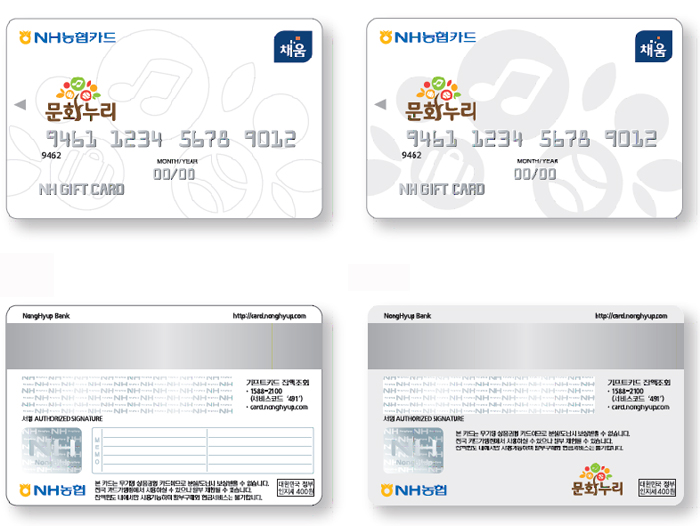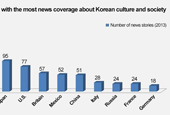In 2014, a wider group of people will be given the opportunity to enjoy cultural programs, sporting events and tourist facilities.
Starting February 24, the Ministry of Culture, Sports and Tourism will issue a "culture card,” its Munhwa Nuri Card, a prepaid cash card that will help people enjoy facilities and services across a wide range of cultural sectors. The cards are useable at museums, galleries, movie theaters, professional sports games, bus companies, airlines and elsewhere. The card will be made available to families in lower income brackets and to households that receive public assistance. This year, nearly 1.44 million citizens are expected to enjoy the benefits of the card.
The card has a lot to offer. It covers access to a variety of cultural programs, such as performances, exhibitions and movies, as well as cultural and arts lecture courses. Card holders can purchase various educational items, including books and music albums. They can also receive some support in terms of travelling expenses, including transportation fees on airplanes and trains, accommodation facilities, as well as tickets to places like theme parks and recreational forests. In addition, professional sports leagues are included in the service scope too. Various soccer, baseball, basketball or volleyball matches can be attended with the card. This year’s card is much easier to use compared with the cards from last year, which were issued separately for each sector: culture, sports and tourism.

Each eligible household will receive a card with KRW 100,000 on it, valid for the whole year. A family with a teenager will get an additional card with KRW 50,000. A maximum of five teenager cards can be issued per household. The leftover money on the household and teenager cards can be combined, if needed.
For those who receive a card but cannot use the full extent of its benefits, special care services will be prepared. For instance, the disabled, those with mobility challenges, or the elderly can opt for a program where a group of people can receive the use of a free support vehicle.
The cards will be issued from neighborhood community service centers or through the Munhwa Nuri Card website (www.문화누리카드.kr).
By Lee Seung-ah
Korea.net Staff Writer
slee27@korea.kr
Starting February 24, the Ministry of Culture, Sports and Tourism will issue a "culture card,” its Munhwa Nuri Card, a prepaid cash card that will help people enjoy facilities and services across a wide range of cultural sectors. The cards are useable at museums, galleries, movie theaters, professional sports games, bus companies, airlines and elsewhere. The card will be made available to families in lower income brackets and to households that receive public assistance. This year, nearly 1.44 million citizens are expected to enjoy the benefits of the card.
The card has a lot to offer. It covers access to a variety of cultural programs, such as performances, exhibitions and movies, as well as cultural and arts lecture courses. Card holders can purchase various educational items, including books and music albums. They can also receive some support in terms of travelling expenses, including transportation fees on airplanes and trains, accommodation facilities, as well as tickets to places like theme parks and recreational forests. In addition, professional sports leagues are included in the service scope too. Various soccer, baseball, basketball or volleyball matches can be attended with the card. This year’s card is much easier to use compared with the cards from last year, which were issued separately for each sector: culture, sports and tourism.

The Munhwa Nuri Card is a prepaid cash card useable at culture, sports and tourism facilities. It became available February 24.
Each eligible household will receive a card with KRW 100,000 on it, valid for the whole year. A family with a teenager will get an additional card with KRW 50,000. A maximum of five teenager cards can be issued per household. The leftover money on the household and teenager cards can be combined, if needed.
For those who receive a card but cannot use the full extent of its benefits, special care services will be prepared. For instance, the disabled, those with mobility challenges, or the elderly can opt for a program where a group of people can receive the use of a free support vehicle.
The cards will be issued from neighborhood community service centers or through the Munhwa Nuri Card website (www.문화누리카드.kr).
By Lee Seung-ah
Korea.net Staff Writer
slee27@korea.kr

